2023
18th of May, 2023
On the 18th of May Šiauliai Academy of Vilnius University together with Researchers' Excellence Network (RENET) invited to take the part the plenary session of the 12th International Interdisciplinary Scientific Conference "THE REGION: HISTORY, CULTURE, LANGUAGE".
Presentations:
- NATO Enlargement and the Transformation of Elites in Post-communist Europe: the Case of Bulgaria from 1960s until Present. Doctoral ResearcherNora Leach (Economic and Social Research Council (ESRC); University of Nottingham, United Kingdom).
- (Ir)relevance of the Regional Dimension in the Context of E-leadership in Local Self-government. Assoc. Prof., Dr Vita Juknevičienė,Assoc. Prof., Dr Rita Toleikienė(Vilnius University, Lithuania), Prof. Dr Irma Rybnikova (Hamm-Lippstadt University of Applied Sciences, Germany), Prof., Dr Iveta Reinholde,Assoc. Prof. Dr Inese Āboliņa (University of Latvia, Latvia).
- Insight into the Classification of Latvian Dialects: History and Today. Full Member of the Latvian Academy of Sciences, Dr Anna Stafecka (Latvian Language Institute of the University of Latvia, Latvia)
- Speaking Territories in the Cultural Landscape – Challenges of Transformation with Respect to Cultural Memory. Assoc. Prof., PhD. Jana Pecnikova (Matej Bel University in Banska Bystrica, Slovakia).
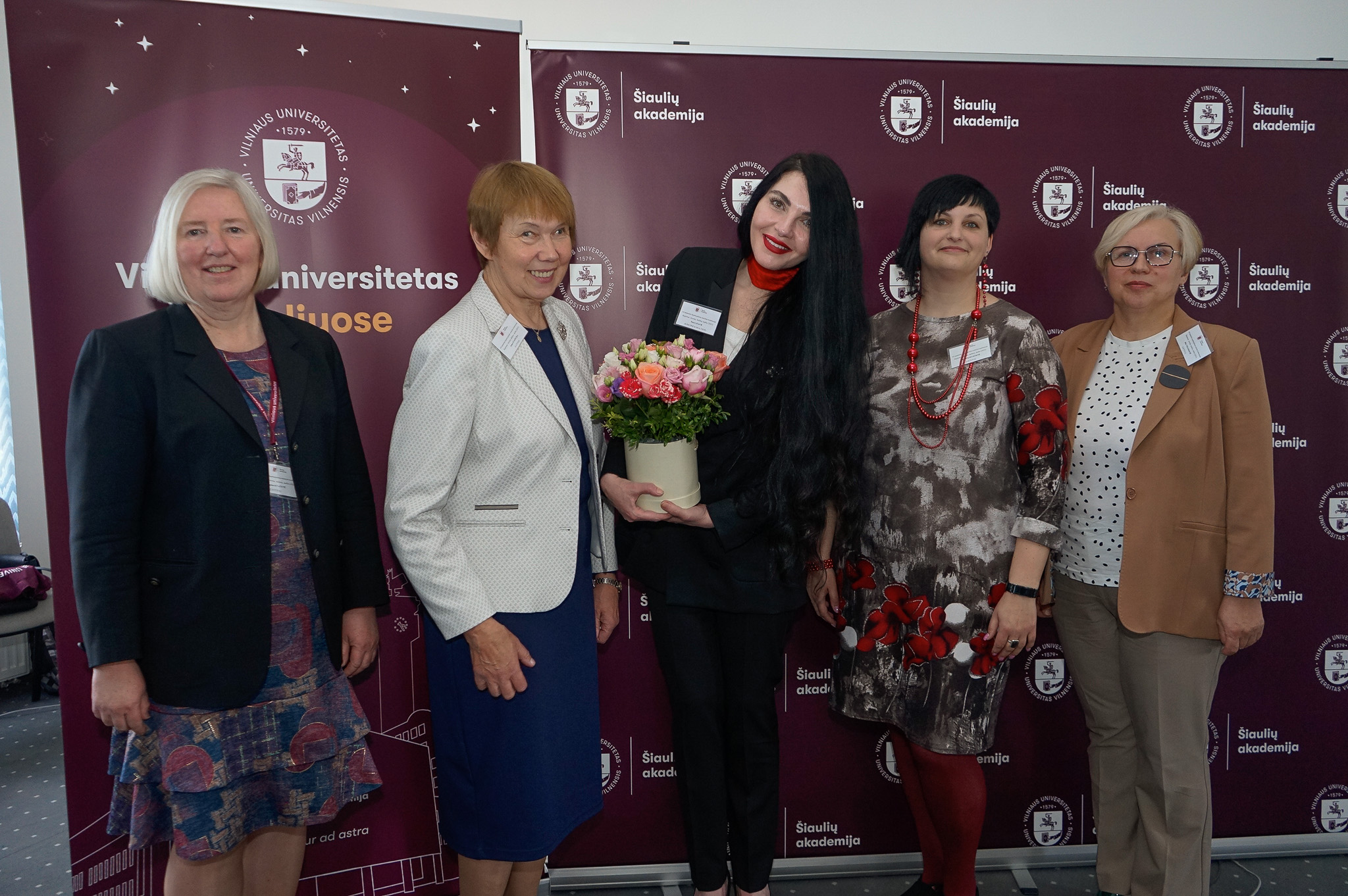
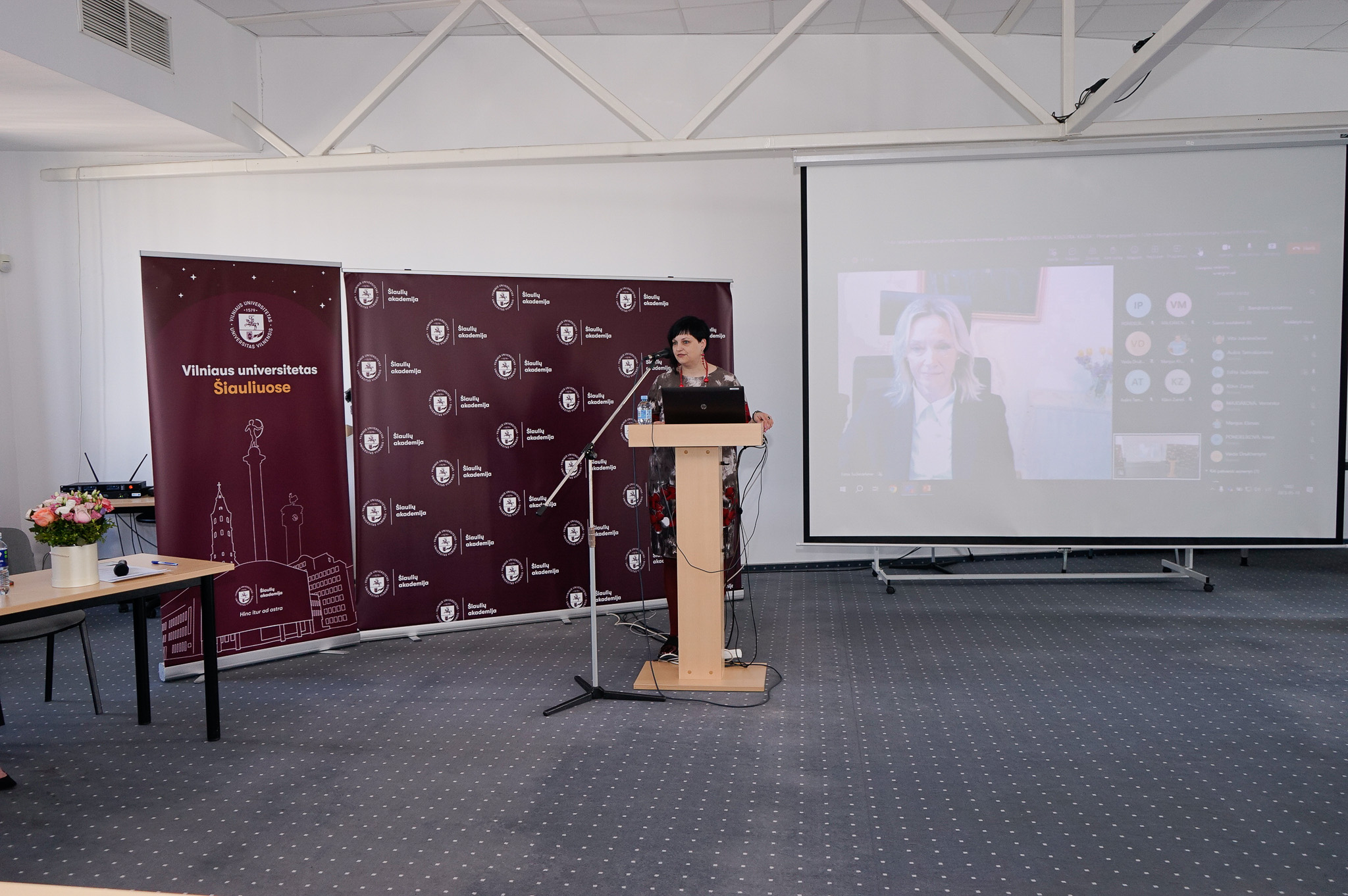
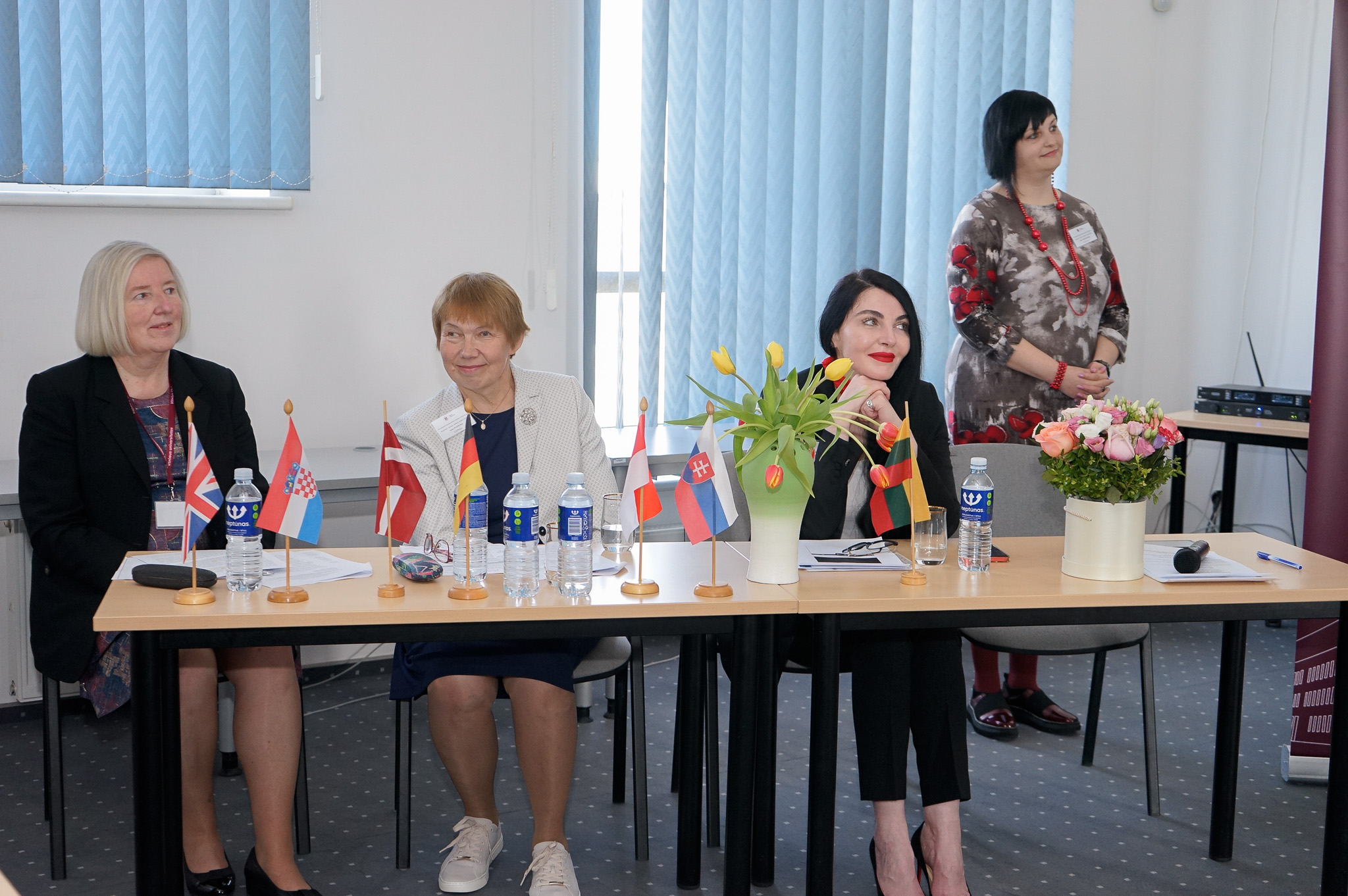
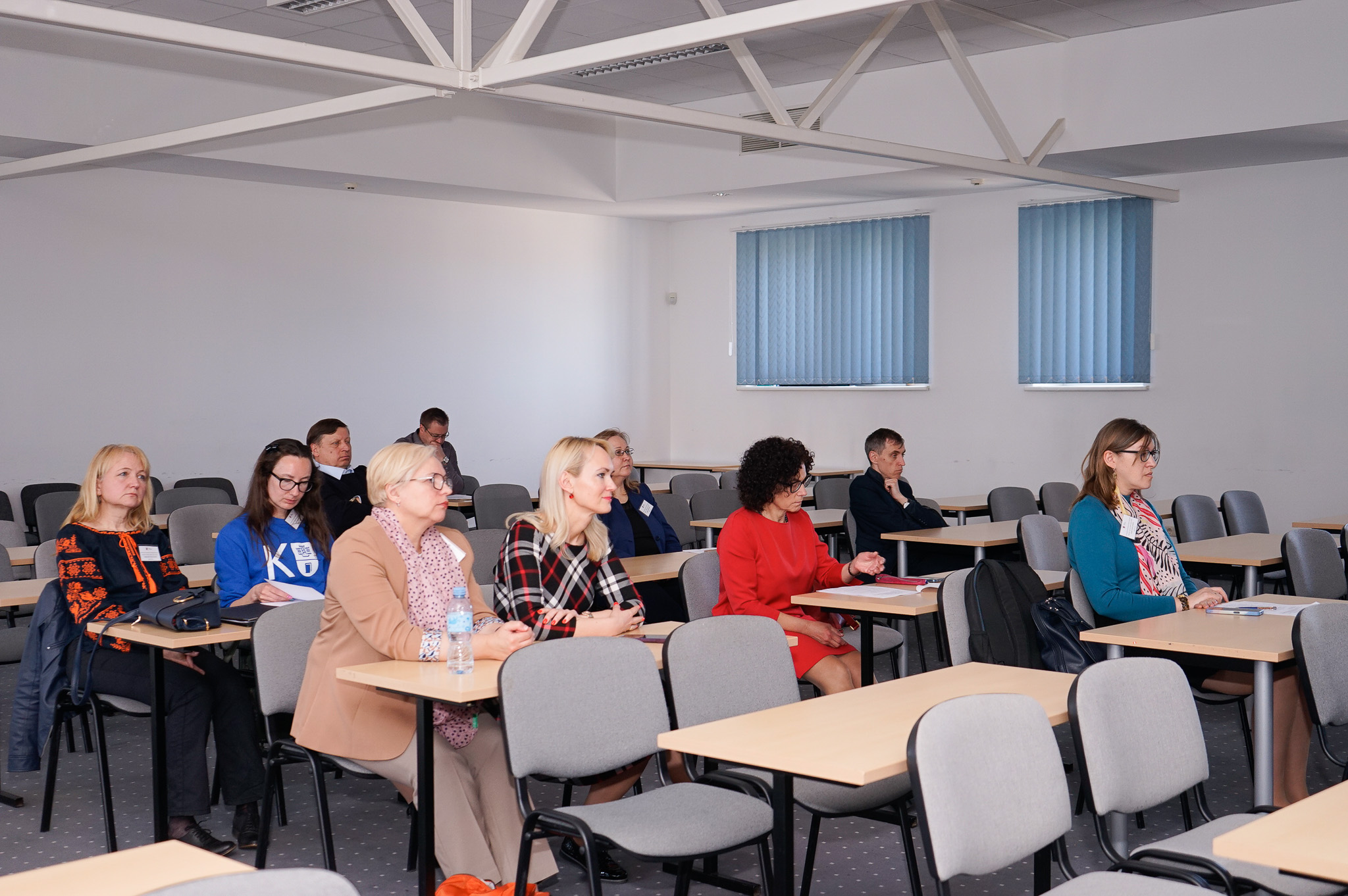
Photos made by Inga Varanavičienė
29th of September, 2023
On the 29th of September Researchers' Excellence Network (RENET) invited to take the part the plenary session of the 16th Jonas Pranas Aleksa international interdisciplinary scientific conference “Development of the State Role in the XXI Century: National and International Context”.
Organizers: Institute
of Regional Development of Šiauliai Academy of Vilnius University, Institute of
Lithuanian Scientific Society, Ministry of the Interior, Research Council of
Lithuania, Researchers’ Excellence Network (RENET)
|
Presentations |
|
E-Leadership in Municipal Administrations: The Post-Pandemic Analysis. Results from Focus Groups in Latvia, Lithuania and Germany Dr. Inese Abolina, University of Latvia (Latvia); Dr. Rita Toleikienė, Vilnius University (Lithuania); Dr. Irma Rybnikova, Hamm-Lippstadt University of Applied Sciences (Germany); Dr. Iveta Reinholde, University of Latvia (Latvia); Dr. Vita Juknevičienė, Vilnius University (Lithuania) |
|
Lietuvos mokslininkų sąjungos veikla regionų darniajam vystymuisi / Performance of Lithuanian Scientific Society for the Regional Sustainable Development Dr. Dalius Serafinas, Vilnius University, Lithuanian Scientific Society (Lithuania) |
|
Strengthening Public Service Quality through Organizational Resilience: Empirical Evidence from Lithuania Dr. Ilona Bartuševičienė, Mykolas Romeris University (Lithuania) |
|
Science for Policy: The Case of Lithuania Salomėja Vanagienė, Research Council of Lithuania (Lithuania) |
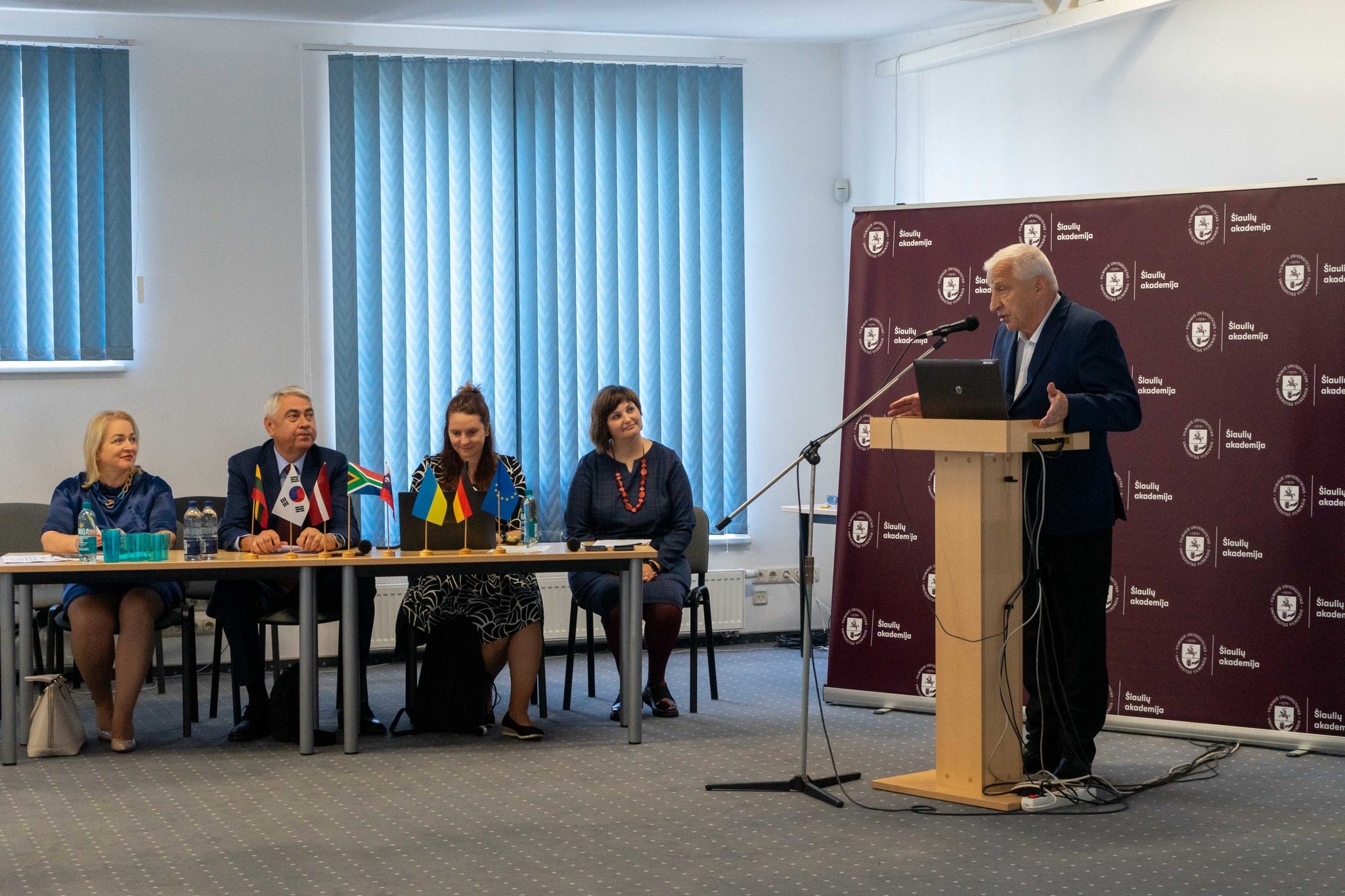
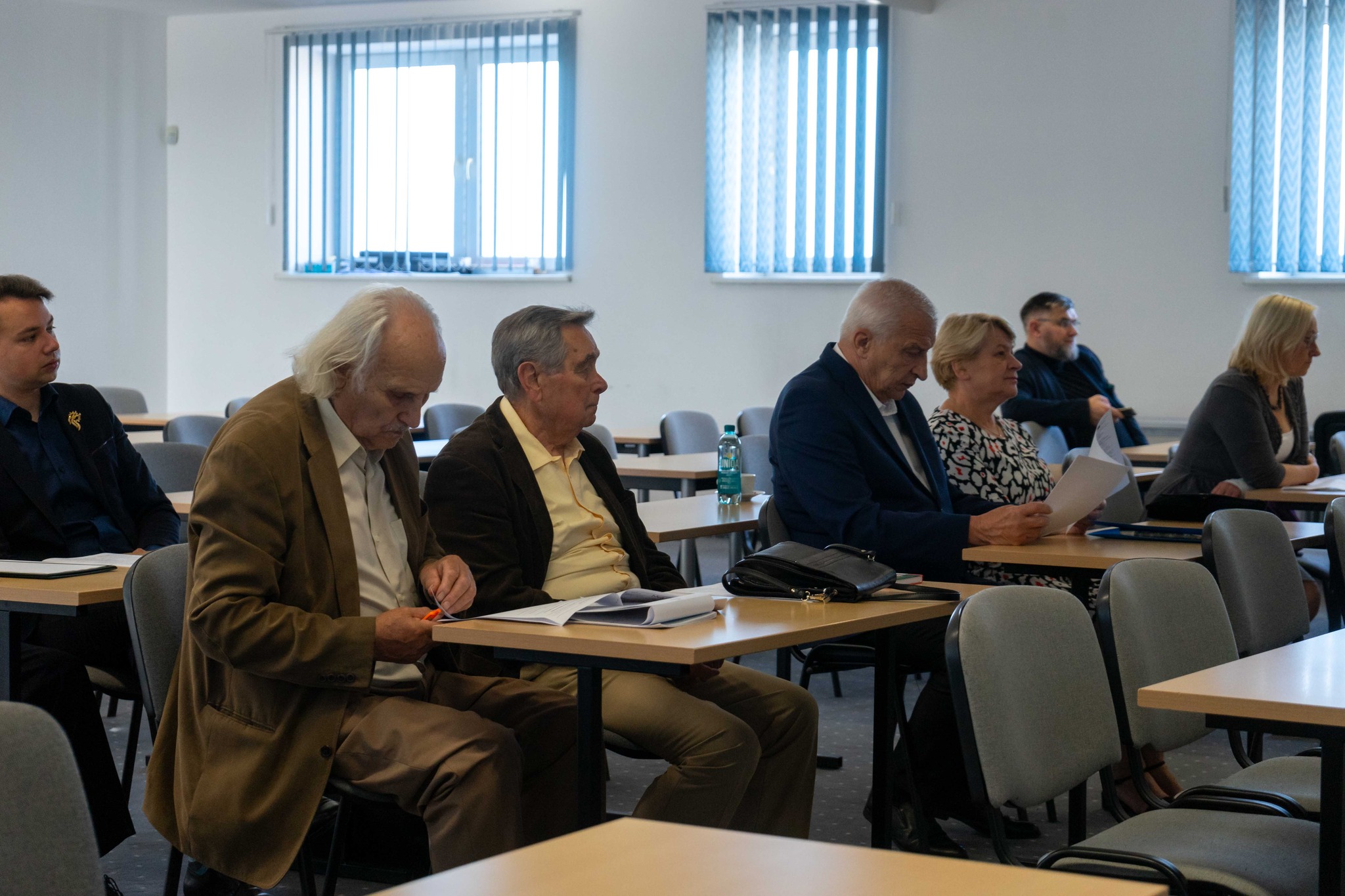
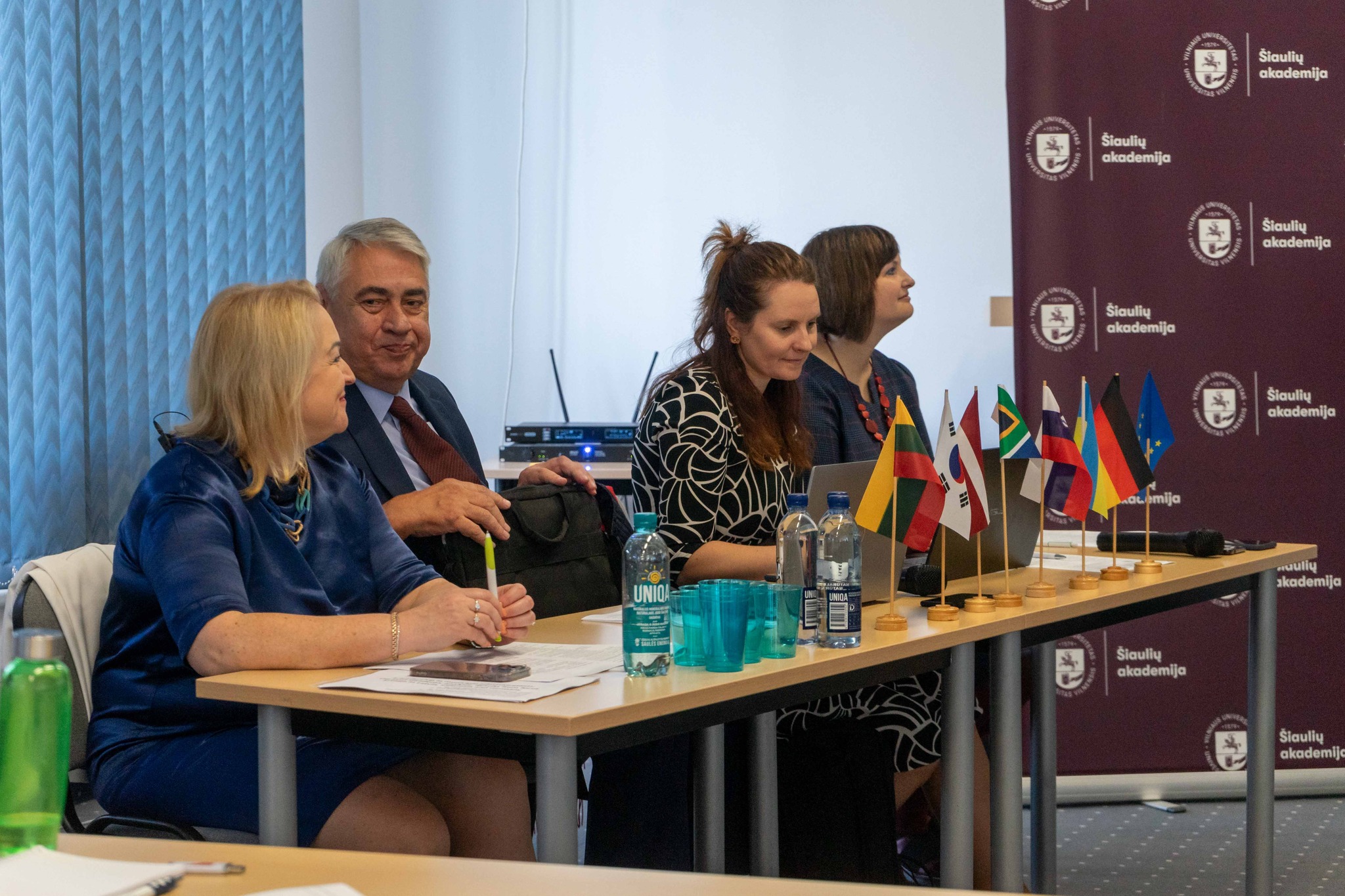
Photos by Emilija Sasnauskaitė.
Later the same day participants were invited to the Working group of RENET "Increase of the regions’ resilience to crises, strengthening the local self-government and institutional potential".
Presentations:
|
A role of the state for balanced regional development: a case of Korea Yung Lee, Chonnam National University (Korea Republic) |
|
Digital technologies and regional development: modern aspects Kateryna Latysh, Faculty of Law of Vilnius University (Lithuania) |
|
The population aging and human capital development: challenges and opportunities for regional growth Zoryna Boiarska, Osvaldas Rukšėnas, Life Sciences Center of Vilnius University (Lithuania) |
|
Glocalisation - return of the 1990s forgotten “side-concept” as a crisis-management response Uroš Pinterič, Pomurje Science and Innovation Centre (Slovenia) |
|
Civil society and public engagement - who gets involved and where? Ilze Auliciema, University of Latvia (Latvia) |
|
Vietos maisto sistemų vystymas: galimybės regionams (Development of local food systems: opportunities for region, in Lithuanian) Vilma Atkočiūnienė, Vytauto Didžiojo universiteto Žemės ūkio akademija (Lietuva) / Vytautas Magnus University Agriculture Academy (Lithuania) |
|
Sumanus miestas vs išmanus miestas: panašumai
ir skirtumai (Intelligent city vs Smart city:
similarities and differences, in Lithuanian) Rytis Milkintas, Vilnius University (Lithuania) |
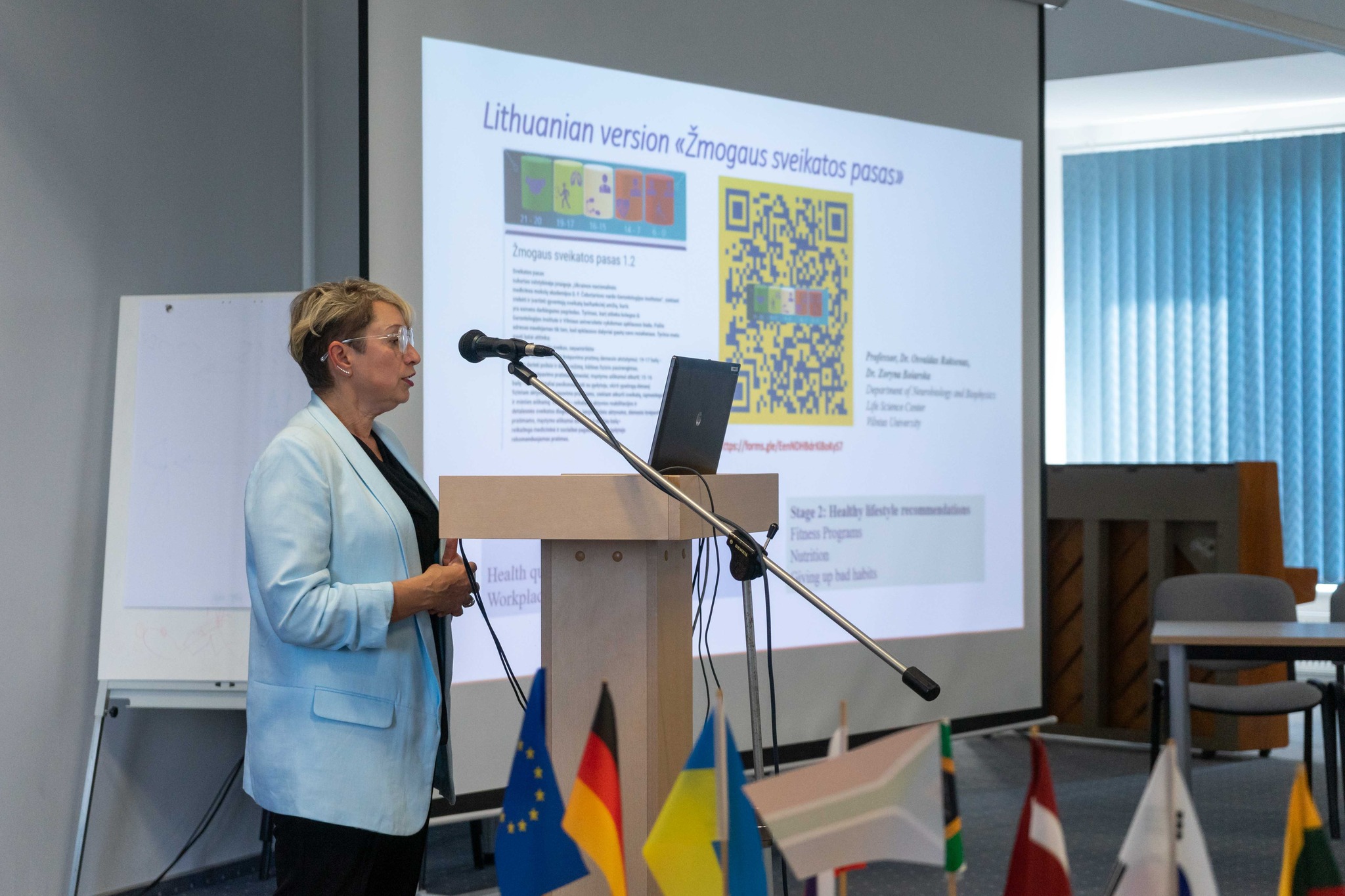
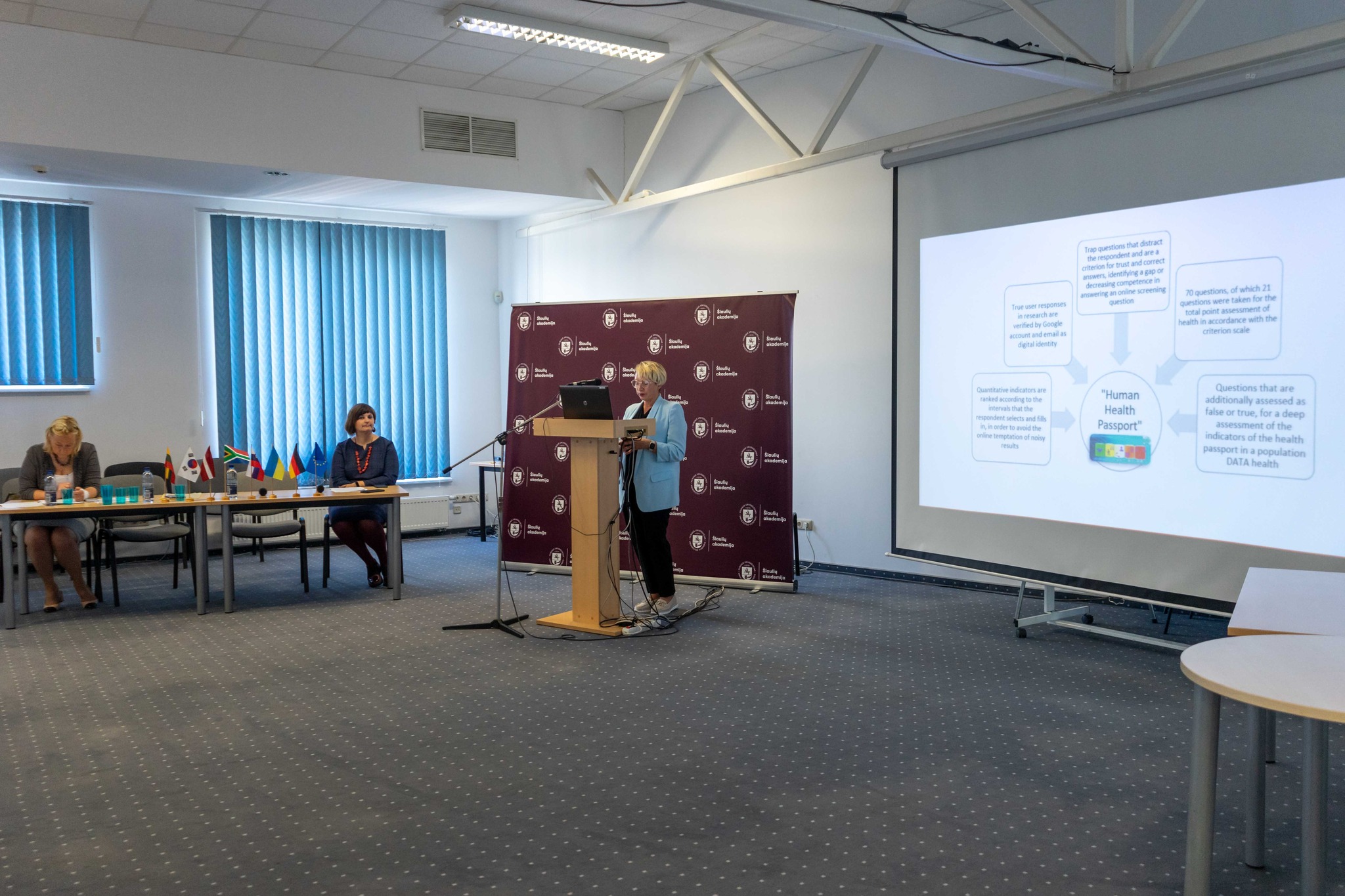
Photos by Emilija Sasnauskaitė.
20th of October, 2023
On
the 20th of October Researchers'
Excellence Network (RENET) invited to take the part the online international discussion “E-leadership
in municipal organizations: implications from Lithuanian, Latvian and German
practice”. It was together organized with the Baltic-German
University Liaison Office.
Keaspeakers were Prof. Dr Irma Rybnikova (Hamm-Lippstadt University of Applied Sciences, Germany), Prof. Dr Iveta Reinholde (University of Latvia, Latvia), Assoc. prof. Dr Vita Juknevičienė (Vilnius University, Lithuania). The research was leaded by Assoc. prof. Dr Rita Toleikienė (Vilnius University, Lithuania),who together with Assoc. prof. Dr Inese Abolina (University of Latvia, Latvia) have contributed to the analysis of research results and preparation of presentation - the input of the discussion.
Digitalisation of the
public sector led to the emergence of e-leadership. COVID-19 global pandemic as
crisis-induced situation required municipal administrations to react
immediately, to act in more appropriate ways to continue performance under
pandemic circumstances. Therefore, ICT usage in the daily routine of the
municipal administrations became mandatory. However, the post-pandemic
situation of e-leadership in municipal administrations was uncovered. This is
why the international group of researchers collaborated to identify how
processes and the content of e-leadership has changed in German, Lithuanian and
Latvian municipal administrations after pandemic. During this discussion researchers shared their insights, seeking for the knowledge
sharing and discussion of different practices and challenges of e-leadership in
municipal administrations in the post-pandemic period. The discussion led to main insights:
- Similarity among the countries: maintaining social relations in teams as a pivotal task of e-leadership (dealing with challenges of social isolation, feeling of social unjustice, need for strengthening social bonds to organization and in teams);
- Differences between the countries regarding control and autonomy while working remotely. “Control” in terms of using concrete guidelines and directions to employees (to ensure work productivity when working at home – from the perspective of supervisors; to have a clear orientation what performance is expected – from the side of employees); “autonomy” in terms of empowering employees to lead themselves when working remotely. After our presentation, “control” seems to be quite relevant in the focus groups in Lithuania and Latvia, whereas “autonomy” is rather an issue in German focus group.
This discussion was the part of the project “E-leadership in municipal administrations:
the post-pandemic analysis (E-LEADER)“. This project of the Baltic-German
University Liaison Office is supported by the German Academic Exchange Service
(DAAD) with funds from the Foreign Office of the Federal Republic Germany.
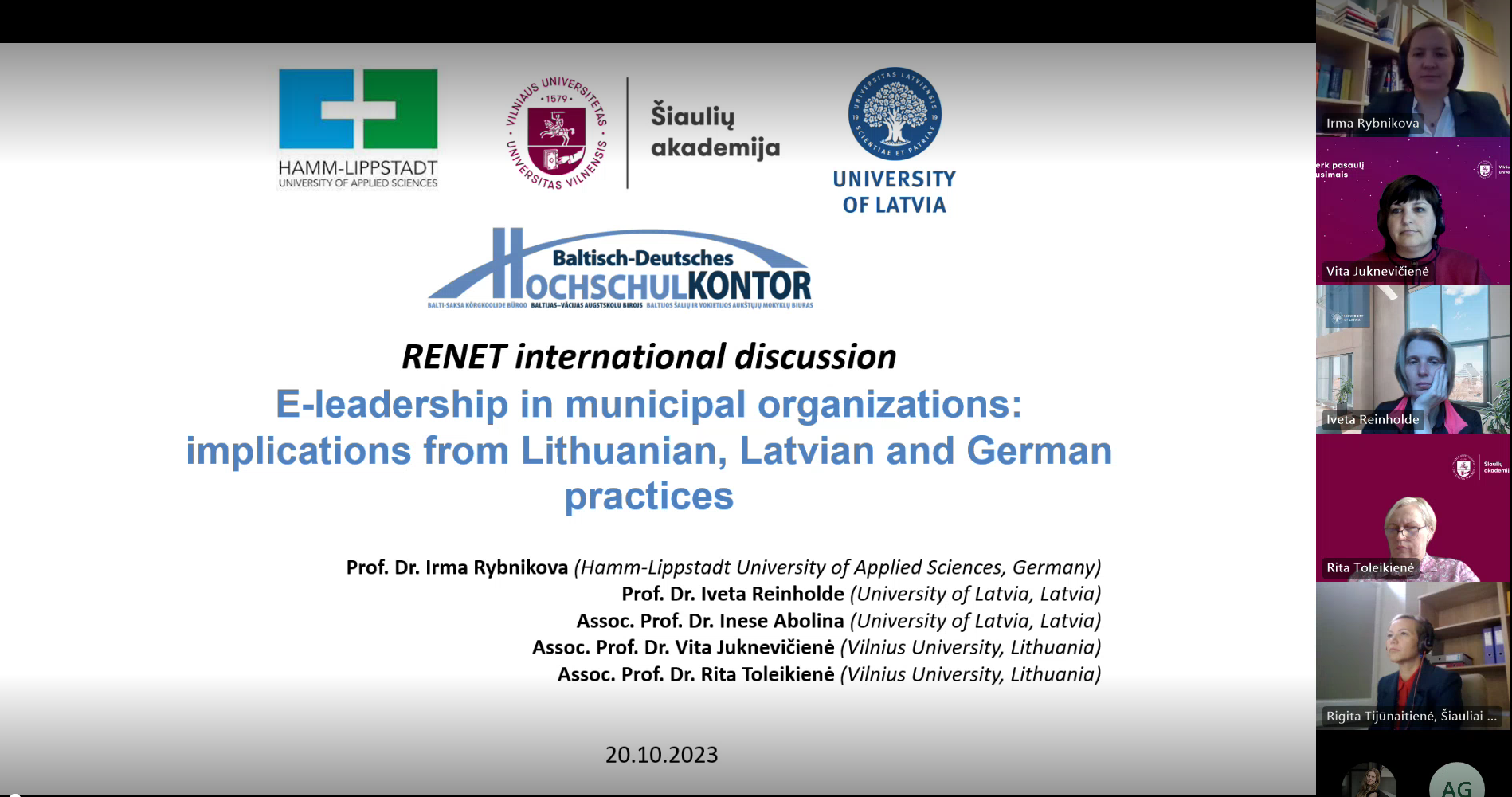
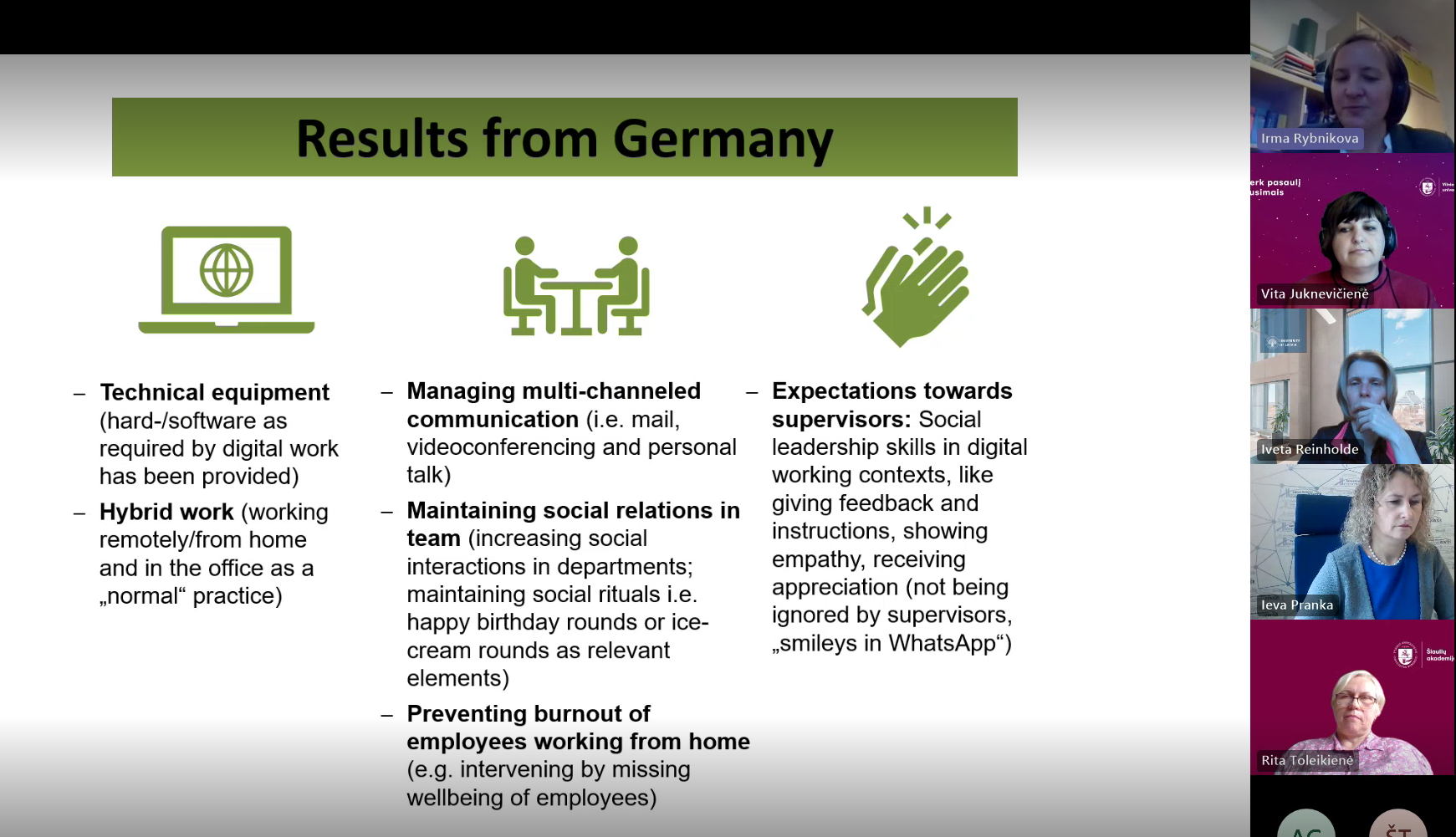
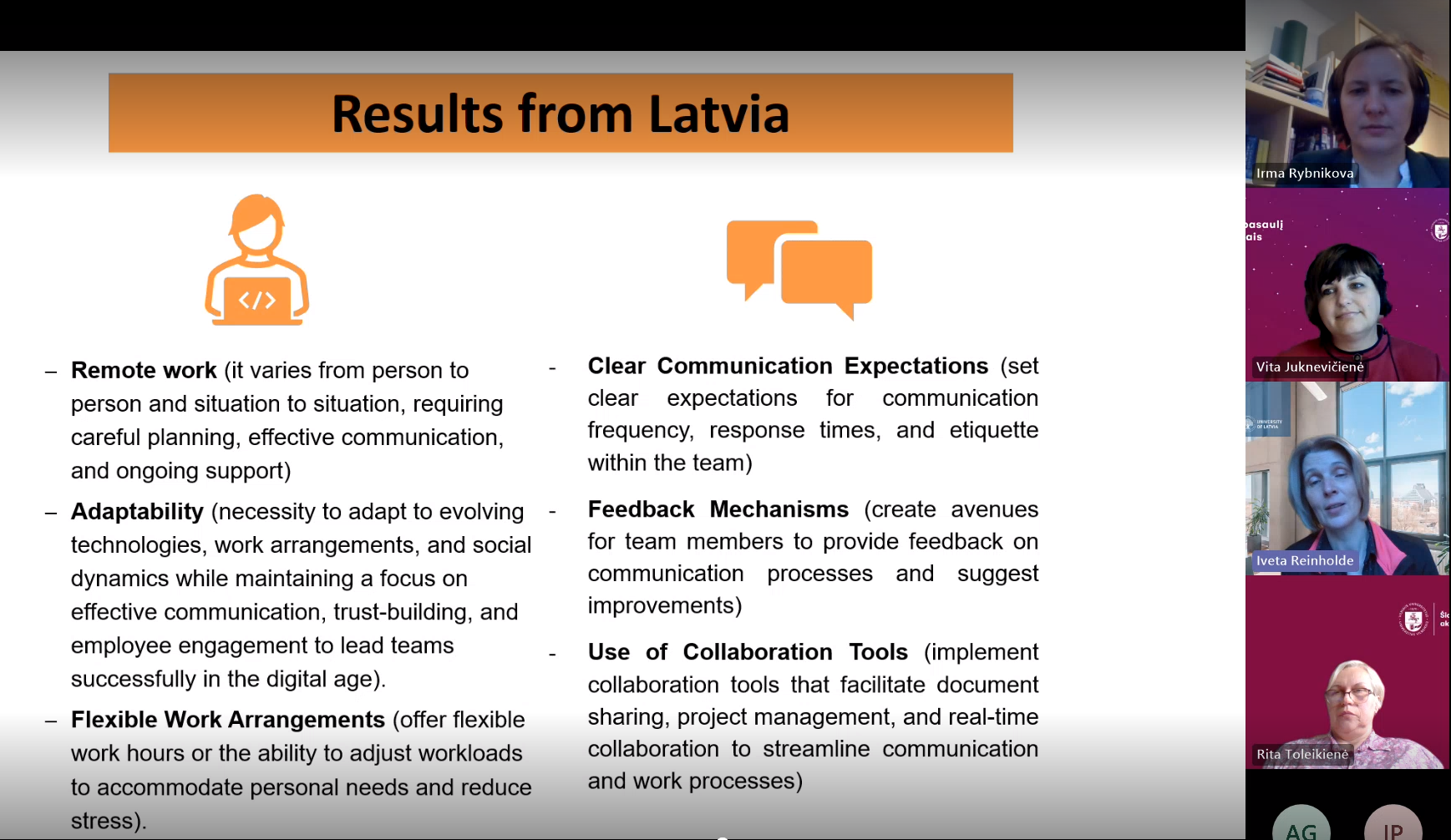
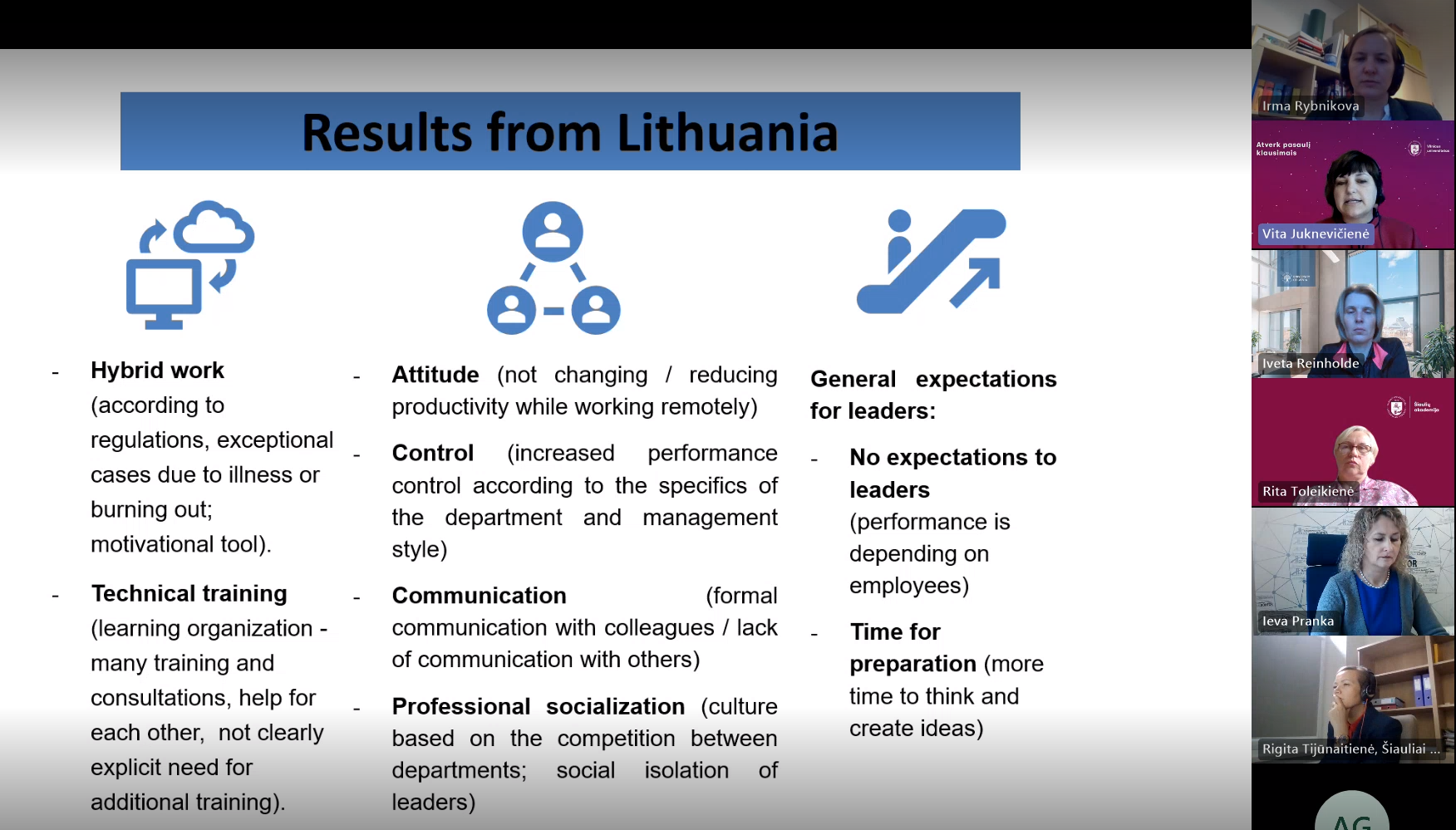
Photos from online discussion.

